Could You Really Change Your Life by Changing Your Words?
Your words are a reflection of your thoughts and beliefs. Thus, the words that you choose to use on a daily basis, influence your actions, habits, character and destiny. Stop and think for a moment. Are there words or phrases that you systematically use that could be preventing you from accomplishing your goals and living the life you want? More specifically, are you ever led down a path of negative self talk, limiting beliefs, or find that others sometimes avoid you? If you answered yes, your words—and inadvertently, your thoughts—might be the culprit. The real-life consequences of your suboptimal systematic choice of words can include stifled growth, unfulfilled goals, and strained relationships. Consider changing your words.
How Words and Phrases Destroy Your Credibility, Reputation, and Set You Up for Failure
Some words can leave you dead in the water. What I mean by that is, there are words that are so damaging to your self-actualization, that they can actually leave you with no room to act, grow, or heal. A quick and easy way to change your life, is to work diligently toward eliminating several words from your vocabulary. Further, you should commit to being much more honest, transparent, and intentional in your communication. One way to set in motion immediate results, is by saying what you mean and meaning what you say in your everyday encounters.
For example, if your friend or colleague invites you to an activity and you respond, “I’ll try and make it,” you’ve likely already made the decision not to attend—consciously or unconsciously. At the end of the day, you are leaving yourself an out. It doesn’t matter why you’ve chosen to leave yourself an out. What matters is that if you’ve left yourself an out, you’ll likely take it.
Instead, your response could be, “I won’t be able to make it, but thank you.” That is unless you need to check your calendar before confirming yes or no. By not being direct and forthcoming with your friend or colleague, you might think that you’re sparing their feelings. However, what you’re really doing, is leaving your friend or colleague with the hope and anticipation that you will attend. What comes next is the sting of disappointment when you don’t show up.
Your Reputation Down the Drain
You’ve now also compromised that individual’s trust in you because you’ve avoided being sincere with them. They might let it slide one time, but after several times of you saying, “I’ll try,” and then not showing up, they’ll be onto you. If they didn’t already know that the word try can be a synonym for no, you will have taught them that valuable lesson. Nobody likes a wishy washy friend and that’s not the reputation you want. Not only will your friend or colleague potentially stop inviting you out, they might also choose to disengage with you altogether. Learn how to build a solid reputation here.
Either scenario potentially leads to you missing out on all sorts of opportunities, such as expanding your network and fostering relationships. The only thing worse than saying, “I’ll try” in this scenario, is making a commitment to attend and then not following through—especially without communicating a legitimate reason before your absence is noticed. Instead, you should be genuine and transparent with your friend by telling them—straight up—that you won’t make it.
Programming Your Brain for Failure
Lastly, this innocent phrase can be much more sinister than you realize. By uttering the words, “I will try,” you’ve signaled to your brain your intent to fail. Frankly, you are giving yourself permission to fail by removing any accountability whatsoever. Because no matter what happens, you can always say you tried. What’s worse is, you’ll engage in a vicious, never-ending cycle of stagnancy in your personal and professional life. Moreover, you possibly won’t have a clue as to how you are self sabotaging and destroying your credibility and reputation. As one of my favorite fictional characters says, “Do, or do not. There is no try.”

Explore Changing Your Words if You Want To Change Your Life
The example above demonstrates how supposedly innocent words and phrases inhibit action, stunt your growth, and sour relationships. Moreover, it illustrates how seemingly innocent words can erode your credibility and hurt your reputation. But the most devastating effect of all is how you are programming and signaling to your brain, as if on a loop, that you intend to fail.
Because your words are a reflection of your thoughts and beliefs, it’s important to evaluate your beliefs about yourself. Professor Carol Dweck at Stanford University is responsible for bringing to our attention the concept of a fixed and growth mindset. If you’re interested in learning more about the power of your mindset, I encourage you to take a deeper dive by reading her book. However, if you want a quick overview about the impact of your beliefs over your behavior, check out this article written by NY Times Best Selling Author James Clear, the author of Atomic Habits.
Regardless of whether you’re already familiar with the concept of a growth and fixed mindset, or whether you routinely invest in your personal and professional development, you might be guilty of using several words that are hampering your self-actualization. In other words, even if you currently feel confident that your beliefs are aligned with the highest version of your optimal self, you still might be falling into the trappings of your language. It’s time to take a deeper look and consider changing your words.
Avoid These Words
So you’re open to changing your words? Here are the words that I find to be slimy little suckers that weasel their way into your daily vernacular. In fact, these words are commonly used without a second thought. The result is that these words will stifle your growth, derail your progress toward your goals, and can potentially ruin your relationships. If you’re determined to be more thoughtful and careful with your language, here are some words that I recommend you avoid. I’d even encourage you to eliminate these words entirely from your vocabulary. That is, if you want to change your life.
Try
We’ve already discussed why the word try is problematic. You are ultimately setting yourself up to fail and not follow through with your commitment. To try is to attempt and is noncommittal in nature. It’s a word that is best reserved for responding to requests that require herculean efforts beyond what is reasonable to expect from you.
A more appropriate use of the word try would be in response to someone asking you to do something beyond your current capacity for which you know you will genuinely put forth a valiant effort to be successful. The word try is not an appropriate choice of words when making a commitment—whether in response to an invitation or in declaring a goal. If you keep this word in your daily vocabulary, reserve it for gaining exposure to new experiences, like sampling a new flavor of ice cream.
Can’t
I was never allowed to say this word as a child, and it has stuck. Own your power and eliminate his word entirely from your vocabulary. As Henry Ford said, if you think you can or think you can’t, you’re right. In my humble opinion, can’t is a word that is often lazily used when someone doesn’t want to do something or simply refuses to exert some extra effort.
People often say they can’t do something when they actually can. What’s particularly destructive about this word is that you have imprisoned your mind by removing all possibility from the equation. Instead, say that you won’t, aren’t willing, or refuse. Next, ask yourself why you won’t, aren’t willing, or refuse. Then, disclose why you won’t, aren’t willing, or refuse to take action.
For instance, if when replacing the word can’t with won’t, not willing, or refuse sounds absurd—even to you—reconsider and change your words. As an example, you might say, “I can’t do math.” When you replace that statement with “I won’t do math, am not willing to do math, and refuse to do math,” the absurdity should become clear. Math is all around us and is inescapable. You need math to calculate time, make sure your paycheck is on point, get from Point A to Point B, budget for groceries, and more. It would serve you better to say that there are particular math concepts that are challenging for you to grasp. Then you can acknowledge that you will need to apply extra effort and work on those concepts if you want to improve.
Too (As In Too Hard, Etc.)
Be careful with using too as an adverb. Imagine if someone said, “That person is too mean and nasty, so I don’t want to be around them.” Now eliminate the word too. Would you want to be around them if they are mean and nasty–as opposed to too mean and nasty? Probably not. The word too in this case sounds rather silly. Yet, we use too as an adverb regularly.
It can be equally, if not more, troubling, for example, when describing a skill or activity. What does it mean if something is too hard? In this case, you are using the word too to imply that something is so hard that it is not possible. Therein lies the limiting belief.
Saying that something is “too” anything can be misleading and would be a more accurate statement if followed up with deeper explanation. When referring to a book being too hard for a child to read, it would be more accurate to say that the reading level of the book exceeds their current reading level. With continued effort, they can reach the required reading level.
In addition, the word too implies a level of subjectivity. Thus, what might be too hard for someone, might not be hard enough for someone else. In effect, the word too is deceptive because it will immediately signal to your brain that something isn’t possible. In actuality, extra effort may be all that is required to overcome whatever is at hand.
Hate
This is another word I was never allowed to say and still stay away from. As a society, we’ve become so desensitized to the word hate. We use it casually to describe something we’d rather not experience again or wish didn’t exist. My father taught me that hate is a powerful word that leads to intense emotions and actions with disastrous outcomes. No good decisions or choices come from hate for anyone. It is a seed best not planted. Hate is like a weed, requiring little to no effort to take root and grow.
Furthermore, hatred has the potential to consume you and extinguish your dreams due to poor decision making. So why use hate to describe flavors you dislike, movies you don’t care to watch again, or anything at all? It’s best to find alternate language, such as by saying, “I don’t care for…” Instead, focus on gratitude. As an example, if you’ve got a special somebody you strongly dislike, you could say something like, “I’m glad I don’t have to spend a single day with that person for the rest of my life if I choose not to.” To learn more about how practicing gratitude leads you to personal and professional success, check out this other article I wrote.
In Summary
There are small steps you can take everyday to change the direction of your life. It may seem counterintuitive to focus on something as simple as language. However, when you focus on changing your words, you begin to evaluate your thoughts and beliefs more thoughtfully. By paying careful attention to your words, it serves as a trigger to jolt your thoughts and beliefs into alignment. This alignment leads to the credibility, reputation, and life you want to have. Ultimately, you can reprogram your brain by breaking down a possible cycle of behavior that has remained unconscious to you. With continued practice, you’ll become skilled at saying what you mean and meaning what you say. You’ll change your life by changing your words.
CHECK-IN
1. Take inventory of your language this week. How often and under what circumstances did you catch yourself using the words try, can’t, too, and hate?
2. Think about a time when you’ve used the words try, can’t, too, and hate. How can you change your language to build credibility, reinforce your desired reputation, and not limit beliefs about yourself?
3. What do you find difficult about changing your words?

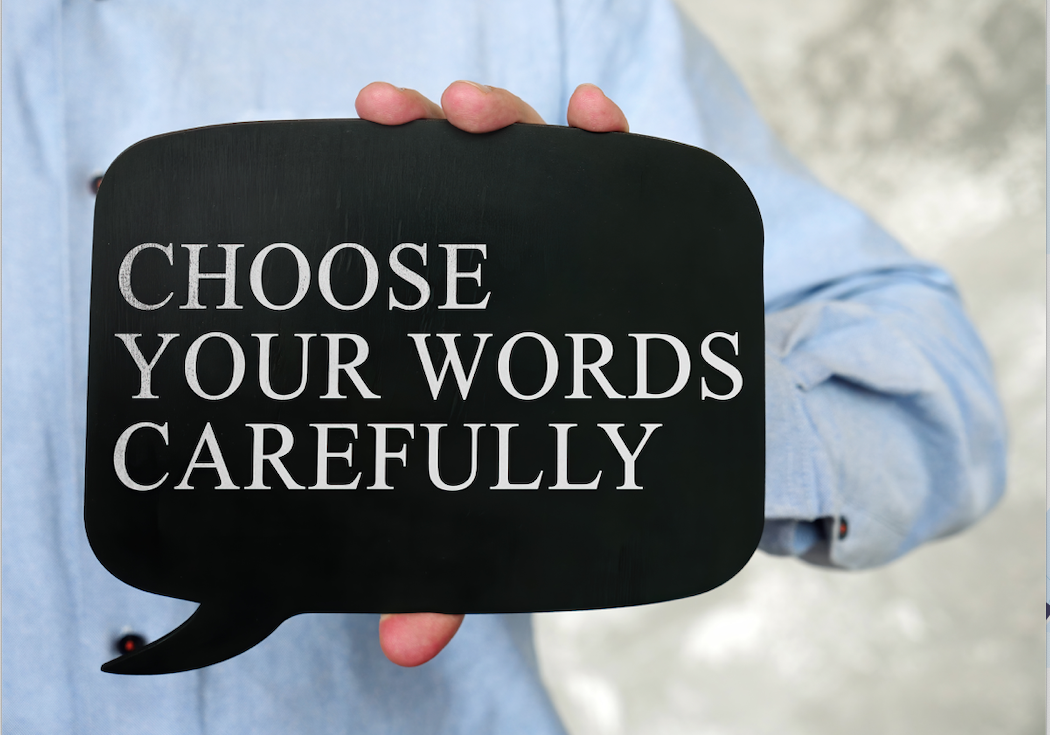
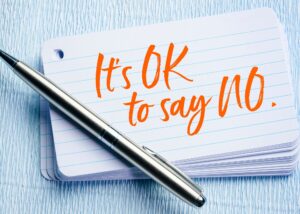










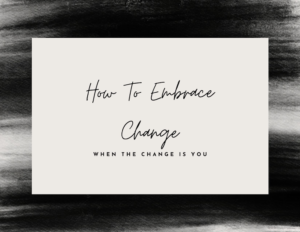

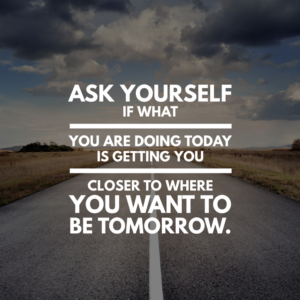








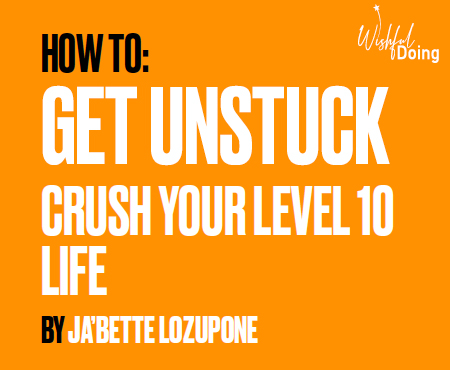


4 thoughts on “Change Your Life by Changing Your Words”
Your words become your actions, so we need to have intention when we use them. WHen we talk to other people or ourselves, we can’t take them back. (our words). I make sure I use positive words even when describing negative situations like, instead of I have a problem, i can say I have a challenge. That just changes the perspective and approach!
I couldn’t agree more, Vanessa. The word “problem” is another example of a word that paints a negative picture. Most people describe something that is wrong, hard, or bad as a problem. Whereas describing something as a challenge or obstacle allows room to move through or overcome the issue/topic at hand. Framing plays a significant role in how we are able to position ourselves for success. To your point, using the word challenge “changes the perspective and approach!”
Words do matter. They lift us up or hold us back. And it’s our choice. Love this blog!
Hi Peggy. I’m so glad you love the blog 🙂 I think about the childhood rhyme, “Sticks and stones may break my bones, but words will never hurt me,” and how far from the truth it is. Words are incredibly powerful. As you said, “They lift us up or hold us back.” I hope that you came away from this article inspired to consider how you can incorporate more thoughtful and precise language into your communication with self and others. More importantly, I hope you embrace the power that words hold so that you can use them strategically to lift yourself and others up. Thanks for sharing your thoughts and wisdom!
Comments are closed.